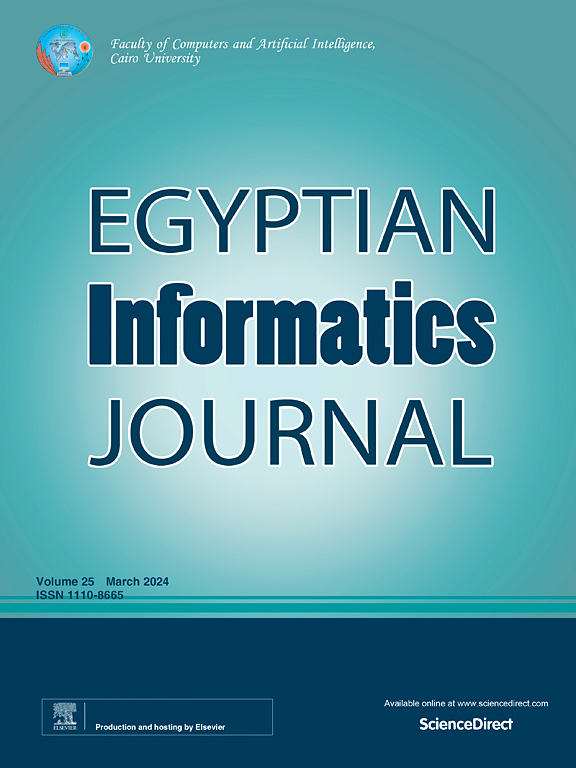Enhanced breast cancer detection and classification via CAMR-Gabor filters and LSTM: A deep Learning-Based method
IF 5
3区 计算机科学
Q1 COMPUTER SCIENCE, ARTIFICIAL INTELLIGENCE
引用次数: 0
Abstract
Breast cancer detection and classification are crucial for early diagnosis and effective treatment planning. This work proposed Modified Context-Aware Multiresolution Gabor Filters-Based Breast Cancer Classification (CAMR- GF-BCC) for identifying and categorizing breast cancer. Initially, the mammographic images are preprocessed through normalization and Gaussian filtering to enhance image quality and suppress noise. Subsequently, the processed images are segmented using the DeepLabv3 + model, which effectively delineates the regions of interest. Post-segmentation, the images are masked to isolate the significant features for analysis. Arithmetic features and CAMR-GF are then performed from these masked images, capturing essential characteristics pertinent to breast cancer detection. These features serve as inputs to a Long Short-Term Memory (LSTM). It is utilized in the work of categorization, leveraging its capability to handle sequential data and capture complex patterns. The proposed method is rigorously evaluated using standard performance metrics, showing its effectiveness in precisely identifying and categorizing breast cancer. This CAMR-GF-BCC work has 99.48 accuracy, 99.64 sensitivity, 99.14 specificity, 99.01 precision, and 98.16 F1-score. The results indicate a promising improvement in diagnostic accuracy, potentially aiding in timely and precise breast cancer treatment decisions.
求助全文
约1分钟内获得全文
求助全文
来源期刊

Egyptian Informatics Journal
Decision Sciences-Management Science and Operations Research
CiteScore
11.10
自引率
1.90%
发文量
59
审稿时长
110 days
期刊介绍:
The Egyptian Informatics Journal is published by the Faculty of Computers and Artificial Intelligence, Cairo University. This Journal provides a forum for the state-of-the-art research and development in the fields of computing, including computer sciences, information technologies, information systems, operations research and decision support. Innovative and not-previously-published work in subjects covered by the Journal is encouraged to be submitted, whether from academic, research or commercial sources.
 求助内容:
求助内容: 应助结果提醒方式:
应助结果提醒方式:


